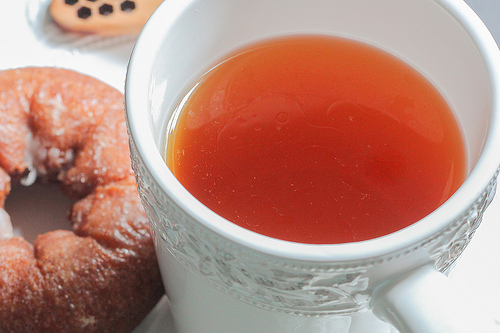Adding Spice to Life!
Spices can add so much to our lives by making the ordinary become extraordinary! With a few carefully chosen spices, a regular cut of meat changes to a succulent, flavorful roast. Apple juice changes to spiced cider. Tomatoes can become marinara sauce, while mashed avocado becomes zingy guacamole. Without spice, our lives would bland and boring.
But, without careful maintenance, those spice that can potentially change everything can be rendered useless. Old or musty spices can actually take away from other quality ingredients. Knowing how to care for our spices will help us keep our food flavorful and zesty!
Proper Storage:
Keep your spices in airtight containers in a cool, dry place. Don’t keep them above the oven or dishwasher- the heat speeds up the degradation. Also, don’t keep them in the fridge- the condensation of moisture in the containers is harmful as well. A cool cupboard, slightly removed from the stove is best. Keeping them out of light can also help them retain their flavor longer.
While many spices are sold in bulk, I find that I have a hard time using that much spice before they start losing their potency. Buying in smaller increments, and using them while still flavorful will help you keep your dishes full of spice! Typically, ground spices and herbs will keep for up to a year, while whole spices such as cloves and cinnamon sticks will last longer- up to two years.
If you have spices that you know have been hanging around inside your cupboard longer than the recommended time, they don’t have to be immediately tossed away! Check them for strength- can you still smell the spice? Is it musty? If you try a sample, can you taste it? If you can still smell and taste the flavor, go ahead and use it! But when you struggle to identify your spice because you can’t taste the difference, toss it! Buy some new stuff! It’s so worth it!

Other Tips:
When spicing dishes, remember that a little goes a long way. While you can always add a little more spice, you cannot take spice out of a dish. Start with a little, then add more if you desire more.
Also, as you spice a dish, never add spices directly about a steaming or boiling pot. The moisture will drift into the container, you put the lid on and trap it inside with the spice. That will speed the degradation of the spice. Add it to your (clean!) palm, and then toss it in the pot, or if desired sprinkle it into a small bowl and then add. Keep that moisture out!
Fresh herbs are fantastic if you have access to them. Fresh herbs are more potent, but also take more space then dried herbs. Use two to three times more fresh herbs than dried herbs. As always, start with less than you think you will need, and add more as you try it out.
Most important thing to do with herbs and spices- experiment! Everyone likes different flavors and different combinations. Some of my favorite dishes have come from simple dishes with just a couple added spices.
One of my favorite spice combinations is cinnamon and cloves. I love fall when these two spices are everywhere! One specific recipe I love is hot cider. Enjoy!

- www.spicesetc.com/faq
- www.spicesinc.com
 Brenda Lower
Brenda Lower
Monthly Newsletter Contributor since 2015
Email the author! brenda@dvo.com
